Reconnecting with the natural world does wonders for our health and wellbeing, whether your family realizes it or not, writes Joanna Tovia.
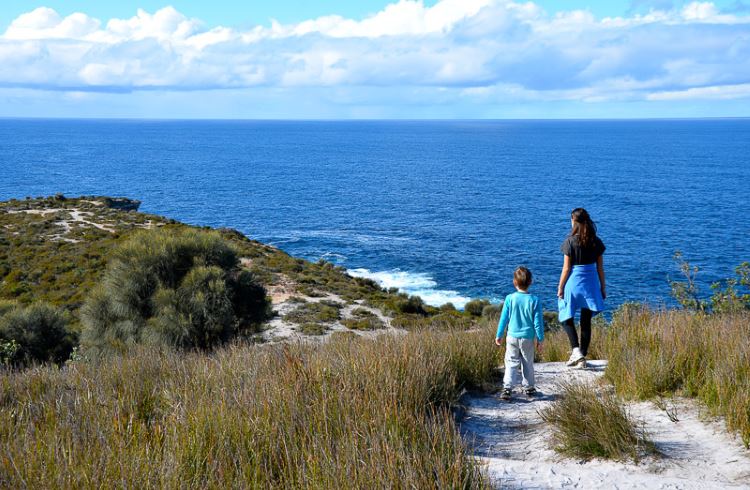 Photo © Joanna Tovia
Photo © Joanna Tovia
I had the right idea: rent a cabin by the beach for a winter getaway nurtured by nature. With one parent a travel writer, and the other a corporate urbanite who’d rather relax by the resort pool than rough it, the kids – aged 5 and 11 – had traveled widely, but comfortably. Heading to a humble cabin on the edge of the forest meant stepping outside their comfort zone, especially when the older of the two realized, with a slump of the shoulders, that there was no Wi-Fi.
The sight of wallabies grazing on the lawn just metres away gave us the distraction we needed – let’s face it, my daughter wasn’t the only one feeling a bit forlorn at the loss of screentime and online connection. A stroll along a narrow path through the forest took us to a beach dotted with more wallabies. Incredibly, a pod of dolphins frolicked just offshore.
- Disconnecting from screens and reconnecting with nature
- How children benefit from time outdoors
- The right way to encourage nature time
- Manage your expectations of gratitude
Disconnecting from screens and reconnecting with nature
I remember that trip with fondness. We watched in awe from the safety of a boat as whales leapt from the water. We took another boat to an island rimmed by seals basking on rocks to learn about a fairy penguin breeding program, and spent hours walking and digging and building castles on the beach. Board games and books replaced screentime with ease.
We signed up for a ranger-led night tour through the same forest we’d walked through earlier. By day, we’d been surrounded by birdsong and the sight of towering trees reaching up towards the sunlight. In the dark, our red flashlights revealed eyes shining down from the branches, and we jumped at the screeching and scurrying of night creatures disturbed by our dramatic whispers and crunching footsteps.
I asked Richard Louv, author of Last Child in the Woods and Our Wild Calling, for his honest opinion on how challenging it is for modern-day kids to withdraw from their devices and reconnect with nature.
“It can be hard to move children away from the television and computer. It’s hard for adults as well; it’s hard for me,” Louv says. “When most children get a chance for independent play in a natural setting, they may resist it for a while – and electronic withdrawal is real – but it doesn’t usually take long for children to become children again … natural play seems to return to them.”
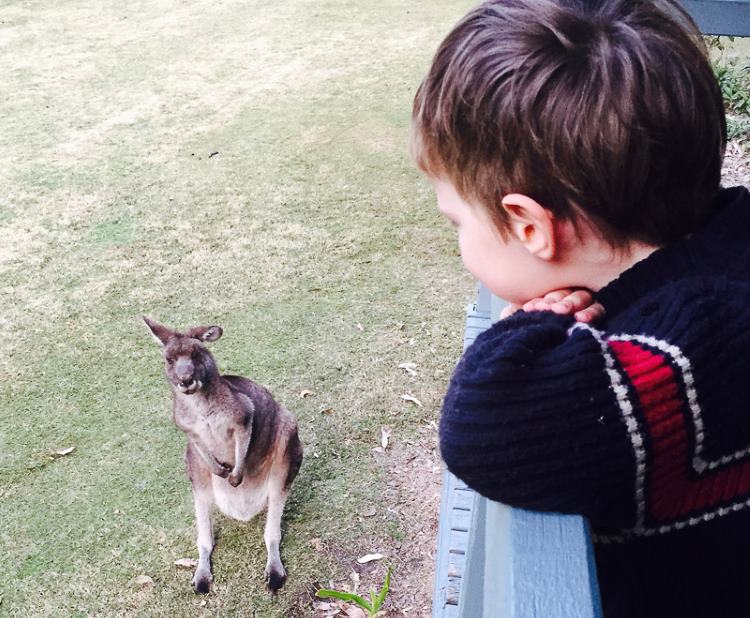
How children benefit from time outdoors
Numerous studies from around the world show just how much children benefit from spending time in nature, with New Zealand’s Department of Conservation going so far as to claim that time in nature is not leisure time, but an essential investment in our children’s health.
Immersing kids in the natural world can:
- Lower blood pressure and heart rate
- Reduce stress, depression and anxiety
- Improve sleep and reduce fatigue
- Improve fitness and sense of wellbeing
- Promote confidence, creativity and imagination
With COVID-19 keeping most of us close to home for now, finding ways for the family to reconnect with nature can also be a cure for itchy feet and cabin fever. A weekend camping trip, picnicking in the park, kayaking on a river or lake, learning to surf … you needn’t travel far from home for an outdoorsy outing or getaway to be worthwhile.
“Many parents tell me that the same kids who complained on the way to the camping trip often, later – when they’re young adults – recall that camping trip as one of their fondest memories,” says Louv, noting with a laugh that this revelation can cause mixed reactions in parents.
“People seldom look back on their childhoods and recall the best day they ever spent watching TV,” he says.
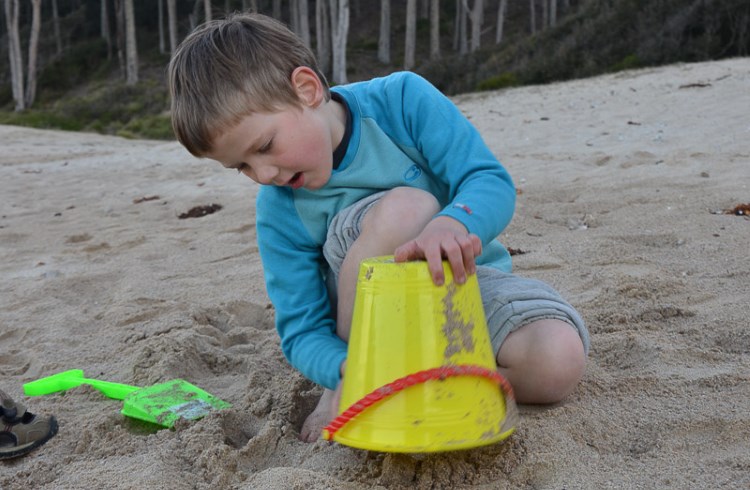
The right way to encourage nature time
As wonderful as getting back to nature is for families, Louv cautions against parents pushing too hard.
“Nature time should never be seen by kids as a punishment for, say, spending too much time in the electronic world.”
The best way to get kids appreciating the natural world without it feeling forced upon them is for parents to find – and express – our own sense of wonder and lead by example.
Beauty is everywhere if you look for it and, from my own experience, simple observations such as “oh wow, look at the colors in that tree bark” can encourage family members to also begin to tune in.
“When parents rediscover their sense of wonder, so do most kids,” Louv agrees.
Build in some unstructured time to relax, explore, and play (any complaints of boredom will soon pass) to really give nature a chance to work its magic.
“Given what we know now about the advantages of meaningful time in nature, and the joy that can be found in that connection, we owe it to young people to encourage them to experience this for themselves,” Louv says. “Whether we live in Australia or the United States, the more high-tech our lives become, the more all of us need nature.”
Manage your expectations of gratitude
As much as you may realize the benefits of immersing your family in nature, it can pay to lower your expectations when it comes to receiving gratitude for your efforts.
“Remember that time we stayed in that cabin with the wallabies on the beach?” I asked my children recently.
Uneasy silence.
“Remember, we went whale watching, and did that night walk, and took a boat over to that island, and there were all those fairy penguins and seals?”
Crickets.
“OMG, was that the place with no Wi-Fi?” my daughter asked.
Related articles
Simple and flexible travel insurance
You can buy at home or while traveling, and claim online from anywhere in the world. With 150+ adventure activities covered and 24/7 emergency assistance.
Get a quote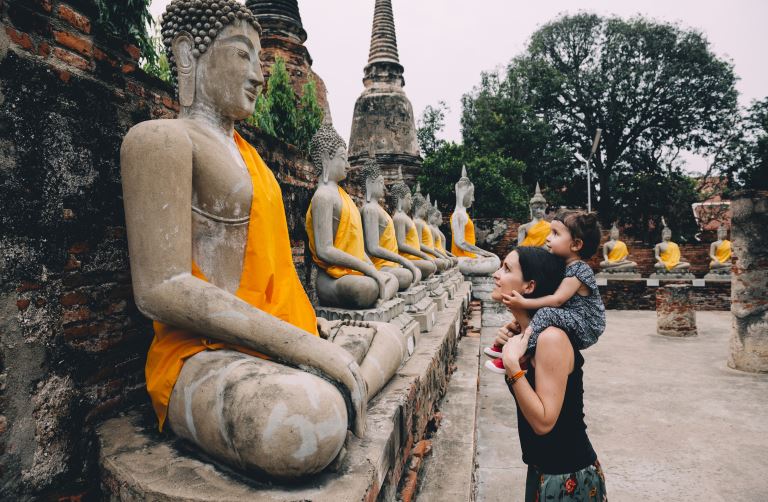
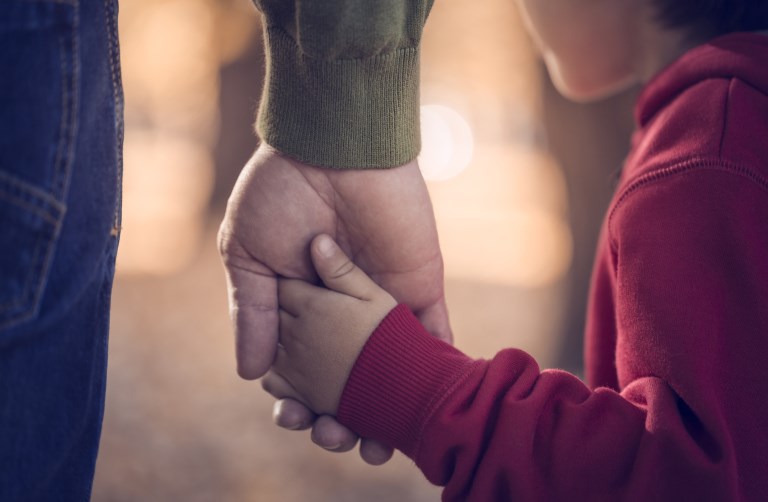
No Comments